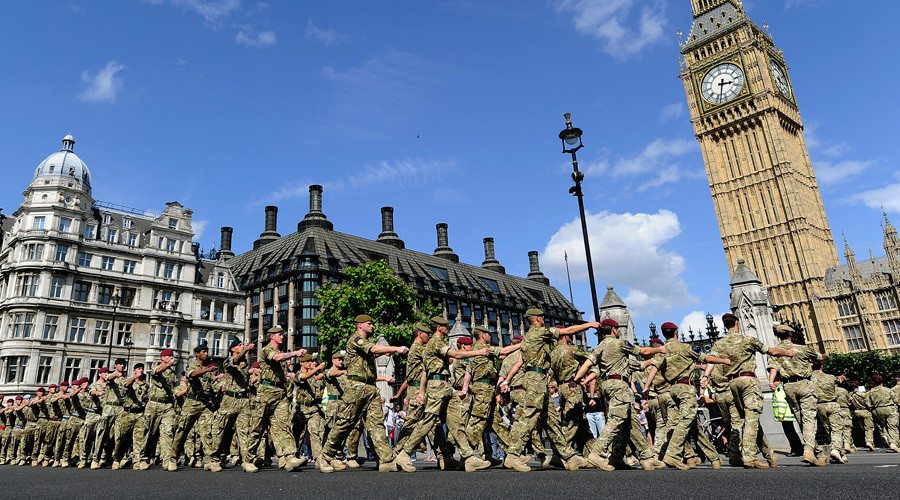 A British general has warned that
newly-elected Labour leader Jeremy Corbyn could face “a direct challenge” from
the army if he becomes prime minister, it was reported in the Sunday Times in
London on September 20, 2015. The
unidentified general said Corbyn, who opposes Britain’s Trident program and
supports withdrawal from NATO, would face “direct action” if he tries to
downgrade the army. The general added
that a Labour victory under Mr Corbyn in 2020 would result in “mass
resignations at all levels” and there would be the “very real prospect of an
event which would effectively be a mutiny”. While Labour publicly refused to
comment on the views of what it described as an “anonymous general”, in private
senior sources described the remarks as “pretty outrageous”. “You can’t have serving officers effectively
threatening a coup against an elected government,” they said. “This general
seems to have forgotten that we live in a democracy.” A Ministry of Defense
source said it was unacceptable for a serving officer to make political
comments about a potential “future government.”
A British general has warned that
newly-elected Labour leader Jeremy Corbyn could face “a direct challenge” from
the army if he becomes prime minister, it was reported in the Sunday Times in
London on September 20, 2015. The
unidentified general said Corbyn, who opposes Britain’s Trident program and
supports withdrawal from NATO, would face “direct action” if he tries to
downgrade the army. The general added
that a Labour victory under Mr Corbyn in 2020 would result in “mass
resignations at all levels” and there would be the “very real prospect of an
event which would effectively be a mutiny”. While Labour publicly refused to
comment on the views of what it described as an “anonymous general”, in private
senior sources described the remarks as “pretty outrageous”. “You can’t have serving officers effectively
threatening a coup against an elected government,” they said. “This general
seems to have forgotten that we live in a democracy.” A Ministry of Defense
source said it was unacceptable for a serving officer to make political
comments about a potential “future government.”
Even some Conservatives expressed
disquiet. The right-wing Tory Member of the European Parliament, (who by the
way, happens to have been born in Peru)
Daniel Hannan, described the general as an “idiot” memorably stated: “We’re not
Bolivia, for God’s sake.”
That unidentified general should be kindly reminded that the very condition for the existence of a standing army in United Kingdom is the consent of Parliament which reunites the House of Commons, the House of Lords and Her Majesty (who gives Royal Assent but with no real political influence). This political compromise was set at the end of the Glorious Revolution in 1689 with the Mutiny Act and it has been maintained since, even during the two World Wars. In the 'Introduction to the of the Law of the Constitution', 6th ed (London: McMillan and Co., 1902), A.C. Dicey begins his chapter IX on the Army (pp 291-305) with the following two phrases: "The English army consists of the Standing (or Regular) army, and of the Militia. Each of these forces has been rendered subordinate to the law of the land." I think it says it all. But if the general wants to understand the rationale, he should read the entire chapter IX on the relationship between the existence of a standing Army and the Rule of Law.
ReplyDelete